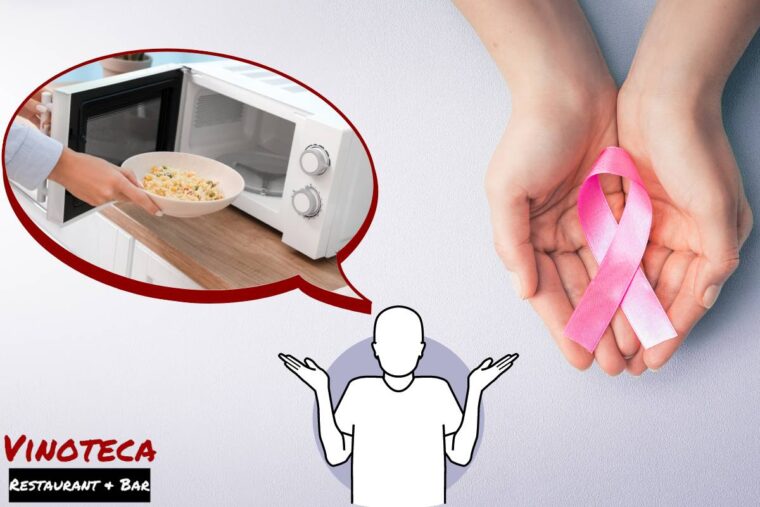Do microwaves cause cancer? This is a question that has been debated for many years, with no clear answer.
Some people claim that microwaves emit harmful radiation that can increase your risk of cancer, while others say that this is not the case and that microwaves are safe to use.
So, what’s the truth? Is it safe to use a microwave?
In this blog post, we’ll take a look at some of the research on this topic and try to answer these questions. We’ll also discuss some tips for avoiding potential risks when using a microwave. Stay tuned!
Do Microwaves Cause Cancer?
When it comes to microwave ovens, there are a lot of myths and misconceptions out there. One of the most common is that microwaves cause cancer. But is there any truth to this claim?
Let’s take a look at the evidence.
✅ One of the main arguments against microwaves causing cancer is that they don’t emit ionizing radiation. Ionizing radiation is the type of radiation that can damage DNA and cause cancer.
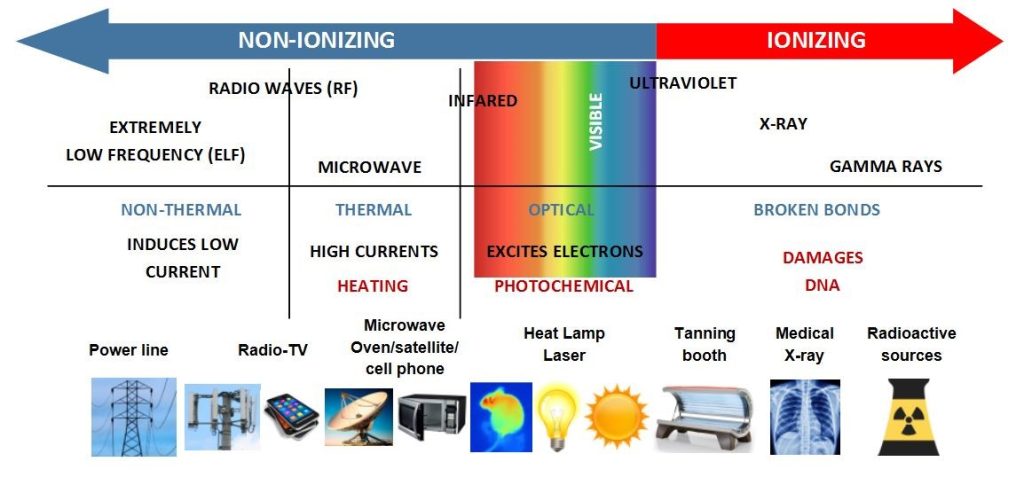
Microwaves simply emit non-ionizing radiation, which is much less harmful. In fact, it’s the same type of radiation that’s emitted by your cell phone and other electronic devices.
So, if microwaves don’t emit ionizing radiation, how could they possibly cause cancer?
Well, some people argue that microwaves can cause cancer by heating up food and causing the release of harmful chemicals.
✅ Microwaves are a type of electromagnetic radiation, and like all other forms of EM radiation, they have the potential to cause harm.
However, microwave ovens are designed to keep this potential harm to a minimum by directing the microwaves into the food, where they quickly heat up water molecules and produce warmth.
So, do microwaves cause cancer? There is no definitive answer, as research on the topic is ongoing. However, there is no evidence to suggest that microwaves cause cancer in humans.
In fact, microwaves actually cook food more evenly and efficiently than other methods, like stovetop cooking.
✅ Additionally, microwave ovens are regulated by the FDA to ensure that they meet safety standards and are not harmful to human health.
While there is no clear evidence that microwaves cause cancer, it is still important to use them safely. Be sure to follow the instructions in your microwave oven’s manual, and never put metal objects in the oven.
If you have concerns about using microwaves, talk to your doctor or a certified radiation safety professional.
More Microwave Safety Information To Read
- Does Microwave Kill Bacteria?
- What Are Three Ways In Which People Use Microwaves
What Is Microwave Radiation & How Does It Work?
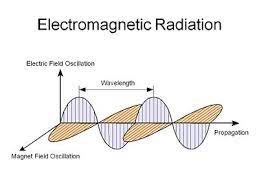
Microwave radiation is a type of electromagnetic radiation. Electromagnetic radiation is a form of energy that travels through the air and interacts with matter.
Microwaves are a type of electromagnetic radiation with a very short wavelength. In other words, they have a lot of energy and can travel through solid objects.
While this may sound dangerous, it’s actually not. Microwaves are safe to use because they are designed to only interact with water molecules in food.
When microwaves interact with water molecules, they cause them to vibrate and produce heat. This is how microwave ovens cook food.

The microwaves in a microwave oven are produced by an electronic device called a magnetron. The magnetron takes electricity from the power outlet and converts it into microwaves.
The microwaves are then sent into the oven chamber, where they bounce around until they reach the food.
When the microwaves hit the food, they cause the water molecules in the food to vibrate and produce heat. This process is called dielectric heating, and it’s how all microwave ovens cook food.
Can Radiation Leak From A Microwave?
Radiation can leak from a microwave oven if the door is damaged or not properly sealed.
Microwave ovens are required by law to have a safety feature that prevents the microwaves from leaking out of the oven when the door is open.
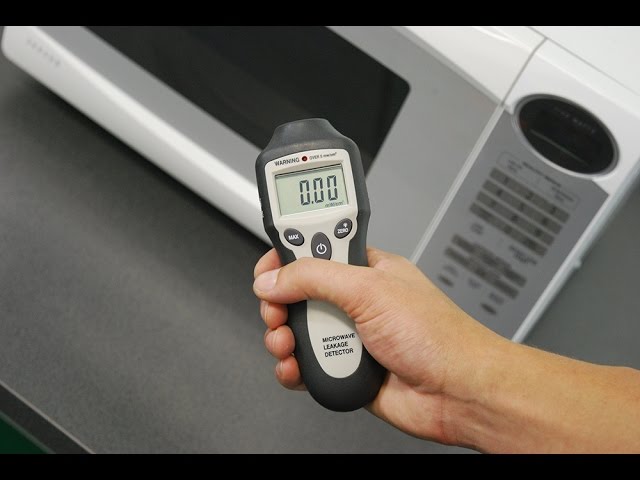
This safety feature, called a interlock, shuts off the flow of electricity to the magnetron when the door is opened.
Without this safety feature, radiation could leak from the oven and potentially cause harm to people nearby.
While it is possible for radiation to leak from a microwave oven, it is very unlikely. Modern microwave ovens are designed with multiple safety features that prevent radiation leaks.
If you suspect that your microwave may be leaking radiation, you can contact the manufacturer or a certified radiation safety professional to have it checked.
Studies That Have Been Conducted On The Safety Of Microwaves
There have been several studies conducted on the safety of microwaves, and the vast majority of them have found that microwaves are safe to use.
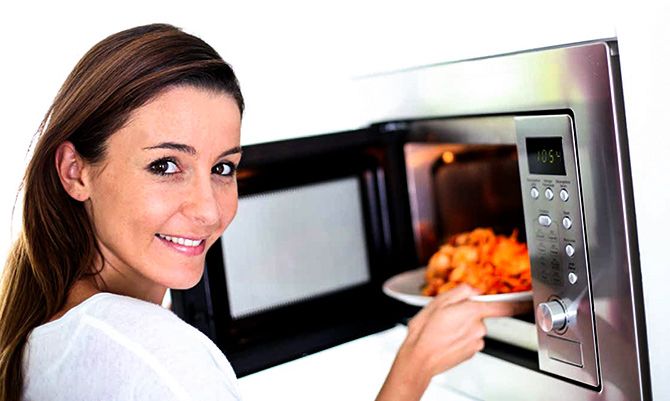
1️⃣ One study, published in the journal Food and Chemical Toxicology, looked at the effect of microwave radiation on rats.
The study found that exposure to microwave radiation did not cause any adverse health effects in the rats.
2️⃣ Another study, published in the journal Bioelectromagnetics, looked at the effect of microwaves on human cells.
The study found that microwaves did not cause any damage to human cells.
3️⃣ A third study, published in the journal Radiology, looked at the effect of microwave radiation on pregnant women and their unborn children.
The study found that exposure to microwave radiation did not cause any adverse health effects in the pregnant women or their unborn children.
These studies, along with many others, have shown that microwaves are safe to use and do not cause any adverse health effects.
So, if you’re worried about the safety of microwaves, there’s no need to be. Microwaves are a safe and effective way to cook food.
If you are concerned about the safety of microwaves, talk to your doctor or a health care professional. They can provide you with more information and help you make an informed decision about whether or not to use microwaves.
In the meantime, it is important to take precautions to minimize your exposure to microwave radiation.
You can do this by avoiding unnecessary exposure, such as standing in front of a microwave while it is turned on, and by making sure that your microwave is properly ventilated.
How To Reduce Your Exposure To Microwave Radiation
There are a few things you can do to reduce your exposure to microwave radiation:
1. Stand at least 2 feet away from the microwave while it is in use.
2. Make sure the door of the microwave is open while it is operating.
3. Do not use microwaves to cook food in an enclosed space, such as a car or RV.
4. Do not stand in front of a microwave oven for more than a minute at a time.
5. If possible, cook food in a glass or ceramic container instead of plastic or foil.
6. Avoid using microwaves to heat up baby formula or breast milk.
7. Use the stovetop or oven to cook food instead of the microwave.
8. If you must use a microwave, cook food for the shortest amount of time possible.
9. Always follow the manufacturer’s instructions for your particular microwave oven.
10. When not in use, unplug your microwave oven and keep the door open to allow the interior to air out.
11. Consider getting an EMF meter to measure the electromagnetic radiation in your home and workplace.
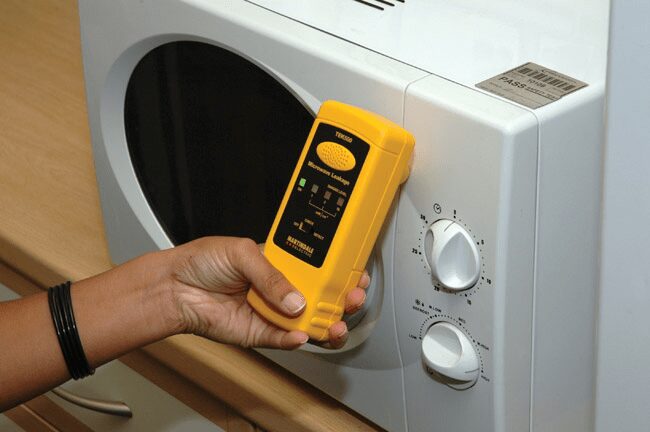
Take these precautions to reduce your exposure to microwave radiation and help keep yourself safe.
Are Microwaves Really As Dangerous As We Think They Are?
We all know that microwaves heat up food by emitting electromagnetic radiation. This energy causes the water molecules in the food to vibrate faster, which in turn creates heat.
So it stands to reason that if this radiation is powerful enough to cause these water molecules to move faster, it could potentially have other harmful effects on the human body.
In fact, they are actually quite safe. The electromagnetic radiation emitted by microwaves is non-ionizing, which means that it does not have the ability to damage cells or DNA.
Now, there are some concerns about microwaves causing cancer, but there is no definitive evidence that microwaves are harmful to human health.
In fact, the consensus among scientific organizations is that there is no convincing evidence that microwaves cause cancer.
So, if you’re worried about microwaves causing cancer, you can rest assured that the evidence does not support those concerns.
However, there are some other potential risks associated with microwaves that you should be aware of.
For example, microwaves can potentially create “hot spots” in food, which can lead to burns if you’re not careful.
Additionally, microwaving food in plastic containers can cause chemicals from the plastic to leach into the food.
So, while there is no need to worry about cancer from microwave ovens, there are some other potential risks that you should be aware of.
If you’re concerned about these risks, it’s best to avoid microwaving food in plastic containers and to be careful when handling hot food from a microwave.
FAQs
Can microwaves cause cancer?

There is no definitive answer to this question, as the research on the matter is inconclusive.
Some studies have suggested that there may be a link between exposure to microwave radiation and an increased risk of cancer, while other studies have found no such association.
The verdict is still out on whether or not microwaves can cause cancer, but it is certainly something that merits further investigation.
Can radiation or microwaves linger in my food?
No, radiation and microwaves do not linger in food. Once microwaves are turned off, they stop generating heat and will not continue to cook food.
Radiation, on the other hand, is a type of energy that can linger in food. However, the levels of radiation found in food are typically very low and pose no health risk.
What are the dangers of electromagnetic radiation?
Exposure to high levels of electromagnetic radiation can be dangerous, as it has the potential to cause burns, DNA damage, and even cancer.
However, the levels of electromagnetic radiation emitted by microwave ovens are typically very low and pose no health risk.
Is the food cooked in the microwave safe?

Yes, the food cooked in the microwave is safe to eat.
Microwave ovens use electromagnetic radiation to heat food, but the levels of radiation emitted by these appliances are very low and pose no health risk.
What are the benefits of microwave cooking?
Microwave cooking is a quick and convenient way to prepare food.
Microwaves can also help to preserve nutrients in food, as they cook food quickly and at lower temperatures than other methods such as stovetop cooking.
Why did Germany ban microwaves?
In 2011, Germany’s Federal Court of Justice upheld a ban on microwave ovens in public places, such as schools and daycare centers.
The court cited concerns about the potential health risks of electromagnetic radiation as the reason for the ban.
However, there is no scientific evidence to suggest that microwaves are harmful to human health, and the German government has since lifted the ban.
Do Italians use microwave ovens?
Yes, Italians do use microwave ovens. In fact, Italy is one of the leading markets for microwave ovens in Europe.
Microwave ovens are popular in Italy because they offer a quick and convenient way to prepare food.
Final Verdict
According to statistics, microwave ovens are used in about 90% of households in America. They are convenient, faster than conventional ovens, and consume less energy.
While there are some concerns about the safety of microwaves, scientific evidence has shown that they are not harmful to human health.
In the end, we hope this article has helped to clear up some of the confusion surrounding microwaves and cancer.
While there is still much unknown about the long-term effects of microwave radiation, it seems unlikely that occasional exposure from using a home microwave oven is cause for concern. So, go ahead and heat up your leftovers with peace of mind!
If you have any further questions or concerns about your health and microwaves, be sure to consult with a trusted healthcare professional.
Thanks for reading!

